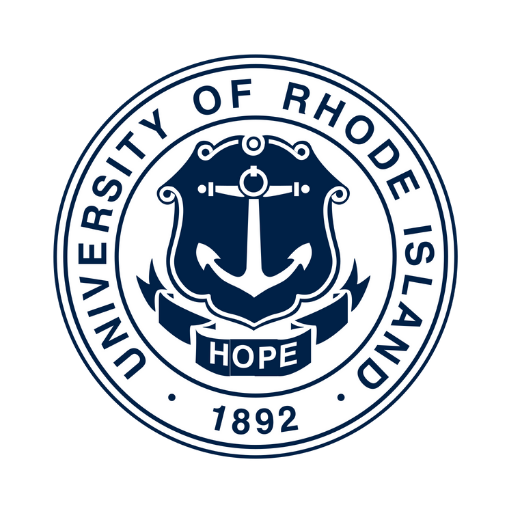2019 Annual Science Immersion Workshop for Journalists
Global Change Impacts and Water
According to the United Nations, water is the “primary medium through which we will feel the effects of climate change” and water scarcity alone affects nearly half the global population.
Do you have the science tools to make the connection between shrinking water supplies, water quality, food production and climate change? Are you looking for story ideas to convey these global change impacts to your news audience? Would you like to build your confidence in discerning the credibility of scientific sources?
Call for Applications
The University of Rhode Island’s Metcalf Institute is accepting applications for its 21th Annual Science Immersion Workshop for Journalists, June 2-7, 2019. Ten journalists will be awarded Workshop fellowships, which include tuition, room and board, and travel support, thanks to the generosity of private donors and Metcalf Institute’s endowment. Two of the ten slots will be awarded to journalists based outside of the U.S.
About the Workshop
The Metcalf Institute Annual Science Immersion Workshop provides professional journalists with hands-on experience in field and laboratory science with expertise from leading scientists and policymakers who are working to project the impacts of global change, identify adaptation measures, and investigate the most effective ways to communicate these challenges. The workshop will address water resource and climate change topics of global significance while focusing on local and regional case studies in and around Narragansett Bay, among the world’s best studied estuaries. Held at the URI Graduate School of Oceanography, one of the nation’s premier oceanographic research institutions, the Metcalf Workshop provides an intense week of learning in the field, classroom and lecture hall.
Metcalf Fellows will:
- Receive a comprehensive overview of climate science and global change
- Gain a deeper understanding of how scientists conduct research and handle scientific uncertainty
- Develop the skills and confidence to interpret and translate the language of scientific journals for news audiences
- Build confidence in their abilities to discern the credibility of scientific sources
- Board a research vessel to study the impacts of rising water temperatures and ocean acidification on coastal ecosystems
- Explore the study of “emerging contaminants” such as PFAS that affect freshwater and marine ecosystems and public health
- Visit wetlands, shorelines, and coastal communities to better understand adaptive management efforts and solutions in response to sea level rise and coastal storms
- Discover new ways to write about global change to build audience understanding and engagement
- Cultivate new sources by interacting with leading researchers and policy experts in an informal, off-deadline atmosphere
- Network and develop lasting relationships with journalists from around the globe
Metcalf Alumni
Metcalf Institute has helped nearly 900 journalists cover the environment with greater accuracy and nuance since its first program in 1999. Metcalf alumni represent all media types and a wide variety of large and small news organizations ranging from local and regional newspapers and broadcast outlets to online and national/international outlets such as the Los Angeles Times, Reuters, National Geographic, China Global Television Network, Marketplace, Politico and PBS NewsHour. Metcalf Institute alumni hail from the U.S. and around the world, including Pakistan, Brazil, Nigeria, Israel, Egypt, Italy, South Africa, and China.
“This experience has changed my entire outlook on covering the environment and climate science. I may have only been in Rhode Island for a week, but the tools I gained during my Metcalf fellowship will stay with me for the entirety of my career.” Tony Briscoe, Chicago Tribune reporter and 2018 Annual Workshop alumnus
“Metcalf has greatly enhanced my ability to break down complex issues for my audience. Not only am I headed back home with a bunch of great story ideas, but the ability to set them against an international background and draw broader connections between issues in my region and the rest of the world.” Tegan Wendland, New Orleans Public Radio interim news director, lead coastal reporter, and 2017 Annual Workshop alumna
Note for journalists applying from outside of the U.S.
While the Workshop addresses environmental topics of global significance, it focuses on U.S. case studies and a U.S. perspective on environmental policies. Metcalf Institute receives applications from journalists worldwide. However, due to funding limitations, only two of the ten fellowships will be awarded to journalists based outside of the U.S.
Eligibility
The Fellowship is designed for early- to mid-career, full-time journalists from all media who are looking to start or expand their coverage of the environment. Applicants must demonstrate a clear need for scientific training in topics relating to global change in coastal environments, specifically related to climate change and water resources. The fellowship includes room, board, tuition, and travel reimbursement paid after the program in the amount of up to US$500 for U.S.-based journalists and up to US$1,000 for journalists based outside of the U.S. Journalists applying from outside the U.S. must provide written assurance that they have full travel funds and can obtain the appropriate visa. Applications for the 2019 Annual Science Immersion Workshop for Journalists must be submitted by February 18, 2019.
About Metcalf Institute
Metcalf Institute is a global leader in environmental science training for journalists and communication training for scientists and other science communicators, as well as provider of science resources for journalists and free public programs and webinars on environmental topics. Metcalf Institute was established at the University of Rhode Island’s Graduate School of Oceanography in 1997 with funding from three media foundations: the Belo Corporation, the Providence Journal Charitable Foundation and the Philip L. Graham Fund, with additional support from the Telaka Foundation. In 2017, the Institute joined the URI College of the Environment and Life Sciences.
Metcalf Institute Funding
Metcalf programming is underwritten by federal and foundation grants, as well as donations from individuals and an endowment managed by the University of Rhode Island Foundation.
For more information click "LINK TO ORIGINAL" below
This opportunity has expired. It was originally published here:
http://metcalfinstitute.org/training/awj2019apply/
